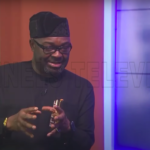THE ECONOMIC CONSEQUENCES OF INSECURITY IN NIGERIA

Can factors that lead to the development of a nation be in separate boxes each unaffected by the other? Or are these factors intertwined is such a way that failure in one area creates collateral damage in other areas. This analogy is essential if we are to appreciate the fact that one factor in a Nation such as Insecurity can have collateral impact of every other development indices.
In my personal survey of literatures; I am yet to see a single country on the planet that is unacceptably insecure (as Nigeria is at the moment), with epidemic proportion criminality and yet growing economically. Security therefore in my opinion is an essential prerequisite for true and lasting economic growth to take place.
The economic security of Nigeria is intricately linked to its national security. Pervasive insecurity depresses the economy in many ways that I will like to consider some of the salient consequences.
TEN ECONOMIC CONSEQUENCES OF GROWING INSECURITY IN NIGERIA
1) DISRUPTION OF ECONOMICS ACTIVITIES
With pervasive insecurity comes internal displacement of people and crippling of economic activities in the worst affected areas. We have witnessed the death of economic activities in the North-Eastern states of Nigeria over the past few years due to the Boko Haram insurgency. We have seen how agricultural produce in Benue was badly affected by the herdsmen clashes over and over again. Insecurity disrupts economic activities and creates internal refugees within the country. Those in the refugee camps are not able to contribute to economic activities as self-preservation becomes their salient goal daily.
2) DECIMATION OF CONSUMER CONFIDENCE
Insecurity that makes daily media headlines, tend to make consumers spend less as they face an uncertain future. So, with less spending, the economy can easily slip into recession. Insecurity that continues for as long as it has in Nigeria can depress consumer confidence which in turn reduces their spending. Not only does insecurity affect individual spending; it also affects businesses who due to uncertainty insecurity creates; put off investment decisions which affects economic output and needed growth in Nigeria.
3) DECREASE IN FOREIGN DIRECT INVESTMENT (FDI)
It is natural and very common that amplification of news about insecurity in a nation; can make things look worse to outsiders than they really are. This has effect of reducing the confidence of outside investors who becomes jittery about investing in a nation with massive security challenges. This is particularly bad when there is a feeling of drift in government responses and a perception that the government cannot control the security challenges effectively. According to the UNCTAD, FDI flows to Nigeria totalled to USD 1.9 billion in 2018 and showed a significant decrease when compared to the previous years ( USD 3.5 billion in 2017 and USD 4.5 billion in 2016).
Insecurity is one of the major reasons for this drop in inward investment alongside other factors such as Nigeria’s poorly developed transport and energy infrastructure (lack of reliable electricity supply), which result in high operating costs as well as an inefficient judicial system and unreliable dispute settlement mechanisms. A high tax burden and the susceptibility of the oil-dependent economy to oil price shocks are also factors. These other factors were there in 2016 when the FDI was relatively high; so it is arguable that mounting Insecurity is the new major factor that is responsible for the reduction in FDI.
4) DISPLACEMENT OF GOVERNMENT EXPENDITURE WITH MORE DEFENCE SPENDING THAN THE ECONOMY CAN AFFORD.
In an effort to be seen to be responding to the increasing insecurity in Nigeria, the government has been spending Hundreds of Billions extra on defence and security related expenditure. These are large sums of money that realistically should have been going elsewhere in the economy.
The more the government spend of defence and security; the less it will have to spend on other key areas of the economy like education, health and even infrastructure. The domestic economic impact of such expenditure is further devalued if it is committed to mostly foreign procurement. So, Insecurity has displaced government spending away from essential areas that needs it into security matters. This is not helpful to grow the economy.
5) DEATH OF CREATIVITY. WHEN PERSONAL SURVIVAL BECOMES TOP PRIORITY, CREATIVITY WILL TAKE A BACK SEAT ON THAT ECONOMY
Nigerians are creative people. All over the world, Nigerians in diaspora are leading innovation and change in many sectors and key players in many organisations leading global transformation. But back in Nigeria, survival has become the overriding consideration for many people. By this I am talking about security and not just the economy. Travelling from one city to another in Nigeria has become a game of chance and death dodging for many people. In such atmosphere; creativity is killed and takes the back seat. Innovation is an vital engine needed to drive change and growth in Nigeria and Africa as a whole. Security gives citizens the space to reflect and be creative. It allows for connections and networking needed to creative critical masses that will tilt the balance in favour of innovative production and economic activities.
6) DEFINITE INCREASE IN BRAIN DRAIN. HUMAN CAPITAL FLIGHT.
Nigeria is losing its best brains on a daily basis through mass emigration out of this country to most Western countries. Canada seems to have exemplified the nation that most Nigerians want to emigrate to, due to its open-door policy to qualified migrants.
As an example; in a recent report of poll into Nigerian doctors conducted by NOIPolls, it found that: “Almost 9 in 10 respondents (88%) disclosed they are seeking work opportunities abroad.” It also found that : “A large proportion (83%) of doctors who filled the survey and are based abroad are licensed in Nigeria, indicating that they had completed their medical education in Nigeria before departing beyond the shores of Nigeria.”
A better quality of life is noted as one of the main reasons for the mass emigration of Doctors. This is just an example of a problem that affects all professions in Nigeria. Insecurity in itself and its consequential negative impact of the civic space and the economy is driving many qualified Nigerians to seek a better life abroad to the detriment of the nation.
7) DEVELOPMENT OF PERVERSE INCENTIVES OF PROFITABILITY THAT PERPETUATE MORE INSECURITY.
There are lots of people in high places that financially benefit from insecurity that it becomes their goal to maintain status quo rather than encourage improvement. There is now a massive industry around insecurity in Nigeria that the few that benefits from it will not wish for any improvement. Hostage Negotiators is an example of a new booming career path for some Nigerians. After a member of a family is kidnapped; the security agencies, puts the family in touch with hostage negotiators who are paid to not only to negotiate downward the massive ransom demanded by the hostage takers but also help deliver the ransom.
Many in our official security agencies enrich themselves through corruption associated with security-related procurements. All these powerful people are few in numbers; but yet influential enough to perpetuate insecurity as that is more profitable for them than tranquillity.
8) DEVELOPMENT OF HOPELESSNESS AND HELPLESSNESS AMONG MANY. THIS IMPACTS ON PRODUCTIVITY
With kidnappings on major highways in some part of the country, many roads have become no-go areas for the masses. Continued insecurity and government incapacity to bring an end to it can lead to a feeling of helplessness and hopelessness especially amongst victims and their families. This state of agitation can affect productivity. Inability to travel freely on its own can reduce productivity of those affected.
The vicious circle that insecurity has become in Nigeria means the confidence in the ability of government is very low. This feeds the helplessness even further. The fear of moving around freely in the country means many lost opportunities for the people in new business ventures or ideation gatherings.
9) DEVELOPING POSSIBLE NATIONAL ISOLATION
Tourists do not visit unsafe places. Insecurity in Nigeria has led to many countries advising their citizens not to travel to many parts of Nigeria. The British Foreign and Commonwealth Office (FCO) for instance; advises British nationals against travel to sixteen states of Nigeria from the North to Niger Delta. Extreme caution is also advised in the rest of the country. With such dire warning, fewer foreigners will make Nigeria a destination of choice. Continued mass insecurity can lead to an isolation of the country by default.
What some may not know is that, the moment your national government advises against travel to a country or parts of it; all travel and other insurance cover you have becomes automatically invalid if you travel to such places against the travel advice. Only specialist insurance will be available at very high cost. So such travel advisory will have an automatic effect of reducing visitors and tourist numbers. If this is allowed to go on for many years; a national isolation may be the consequence by default.
10)DEEPENING CORRUPTION AT ALL LEVELS
The chaos and uncertainties created by insecurity can allow corruption to grow as the government and citizens are distracted by focusing on fighting insecurity. Aside from in itself feeding corruption; insecurity can allow corruption in other areas to fester and metastasise into deep rooted culture difficult to uproot.
From the foregoing; it is clear that any effort to grow the Nigerian economy by this government will most likely fail if Insecurity is not dealt with. Insecurity is no longer just a problem that affects our security sector; the entire economy is at stake if something is not done to fix this menace. This economy cannot grow in a state of mass insecurity. A secure and stable nation is the foundation on which new economy can be built. As we adapt to the challenges of a changing world and repositioning our economy for growth and increased employment; security must be sorted as a matter of economic priority.
A strong and stable economy growing at a good rate actually helps national security as more money is available for defence spending which further bolster the security infrastructure. So, Nigeria need a strong and growing economy to assure its long-term security. Hence; all must be done to bring under control the insecurity that currently afflict most parts of the country. Government’s ability to protect and advance Nigerian economic interests against threats (Domestic or Foreign) is what creates Economic Security. Economic Prosperity which is usually defined as economic growth, low inflation, full employment, high productivity, high levels of investments, etc helps to create the economic security this nation need. Securing life and property and reducing nationwide insecurity will help create the Economic Security needed to make us truly the giant of Africa.



